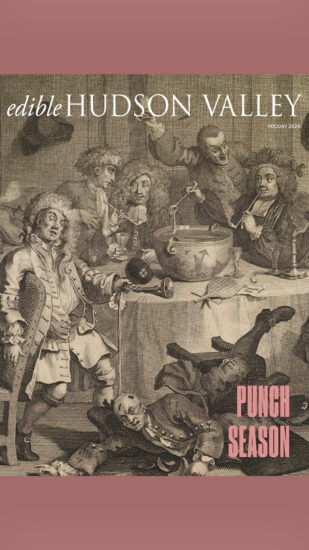The People-First Meal Delivery Service Comes to Westchester
There are a lot of origin stories in the meal delivery service world, but, generally, the main characters include an entrepreneur, a venture capitalist, and someone in tech. What sets Feast & Fettle apart is that the business developed more organically. In fact, it was started by a cook.
According to Carlos Ventura, Feast & Fettle’s CEO, the enterprise was born of necessity. In 2016, Maggie Pearson—a personal chef and nanny—began cooking and prepping meals for clients in their kitchens as an extension of what she was already doing in their homes. Says Ventura, “She was cooking for about a half a dozen families here in Providence, RI. She would cook when they weren’t home, doing meal prep for the week. She’d do everything—shop, prep, cook—then she would package it and leave it in the refrigerator.” Pearson discovered that her clients were willing to pay a lot of money for this service, plus, word-of-mouth was generating interest. Maggie committed to the venture, saying, as Ventura recalls, “’Look, I’m gonna sell my car, I’m gonna buy a delivery van, and I’m going to rent out some kitchen space.’” And that’s what she did.
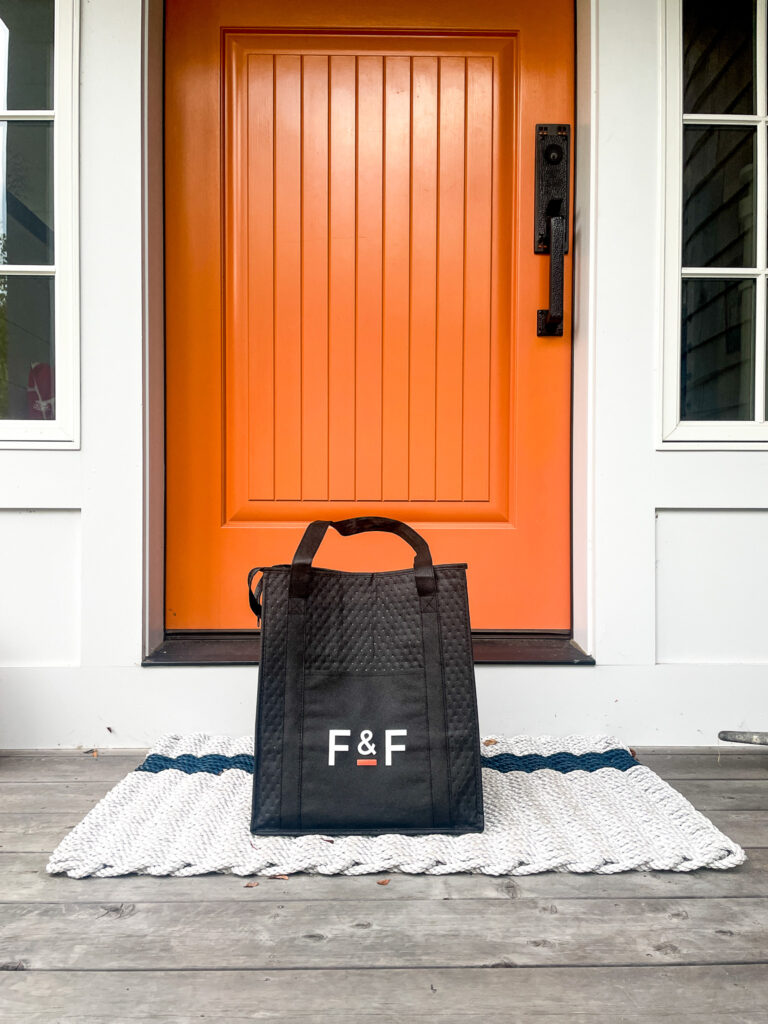
Pearson hired her best friend Nicole Nix to help, but Ventura came to the project a bit later. He knew what was happening because Ventura was close friends with the husbands of Pearson and Nix. So, unlike virtually every other meal delivery service, Feast & Fettle was started by people who were friends first and co-workers later.
At that time, Ventura was at an interesting point in his career. He had left his investment banking job at Goldman Sachs to join a growing, Uber Eats-like food delivery service in London called Deliveroo. Two years later, he emerged a somewhat embittered expert in the field. “I know a ton about the food delivery space—a lot about the technology and the marketing. I tried every single meal delivery service out there, right, and I realized how difficult it was to scale the businesses, and, also, how hard it is to just make money in this space. It’s hard … it’s really, really hard.” Disillusioned with the world of tech-aided food delivery, Ventura thought, “Alright, I’m gonna move back to the states. I’m going to start something, and it’s certainly not going to have anything to do with food. That was the only rule I had.”
Back in Providence, Ventura’s friends at Feast & Fettle needed help. They’d grown the business’s customer-base from 6 families to thirty, but they had no idea how to scale the business into profitability. When Ventura returned from London in 2018, Pearson was considering giving up. Having been asked for his advice (which was pessimistic), Ventura went into the kitchen to try some of the dishes. That’s when, as he says, “I noticed what they were doing. I saw the attention to detail. I saw the quality, and I loved how they could accommodate the dietary preferences of everybody in the household. It was very personalized. That’s what I was attracted to. I was like, ‘Wow, we’re really small now, but if we could scale this up, I think we have something special.’”
Scale up they did, and now Feast & Fettle is a 6-state, 10,000-member enterprise that still sticks to Pearson’s original precepts. “We started this business as a hospitality business, as Maggie, the personal chef,” Ventura explains. “And all we’re trying to do is scale up what Maggie did for those first six families, right? Technology enables that, marketing enables that, but at our core, we’re a hospitality business. The food needs to be phenomenal, but the customer service needs to be phenomenal, too.”
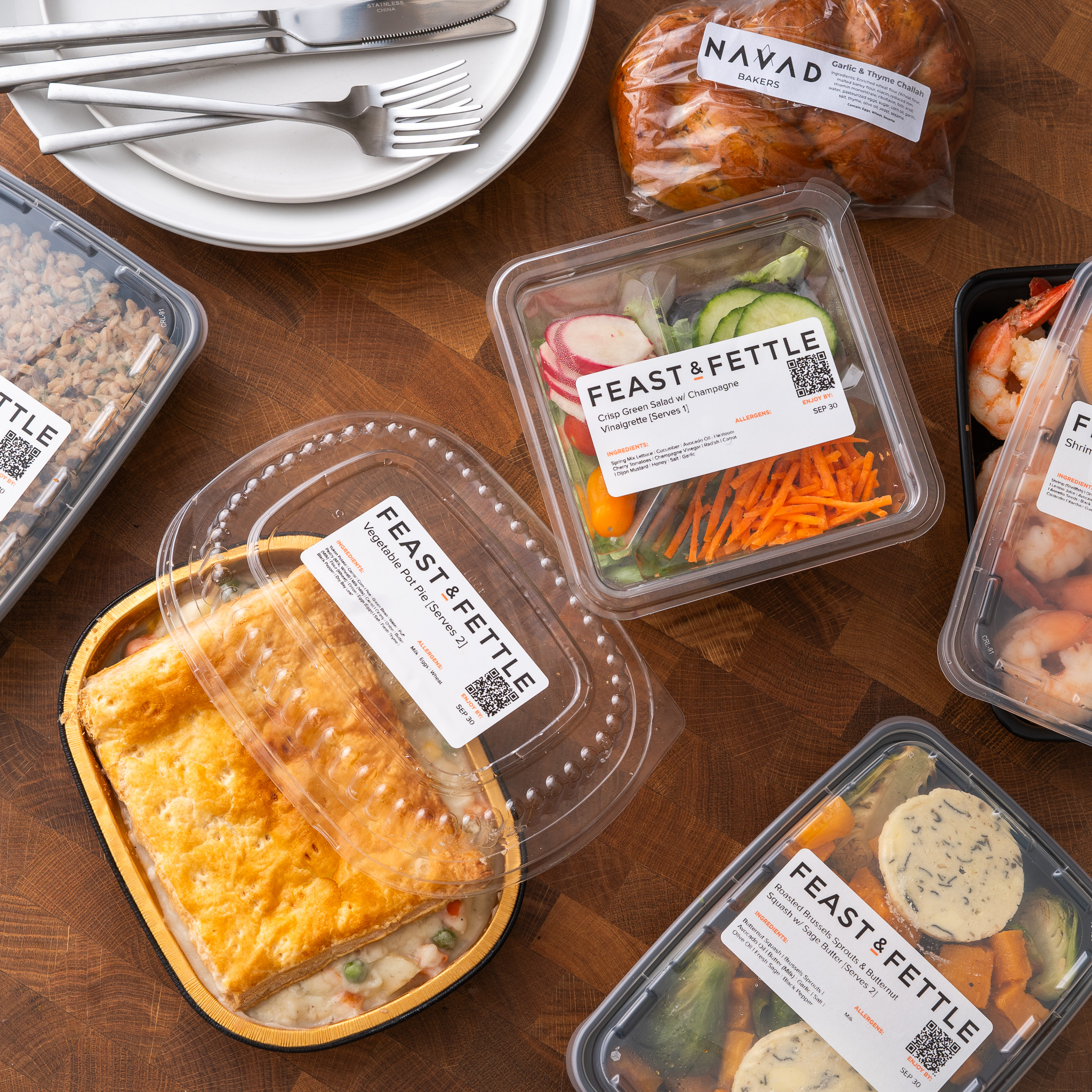
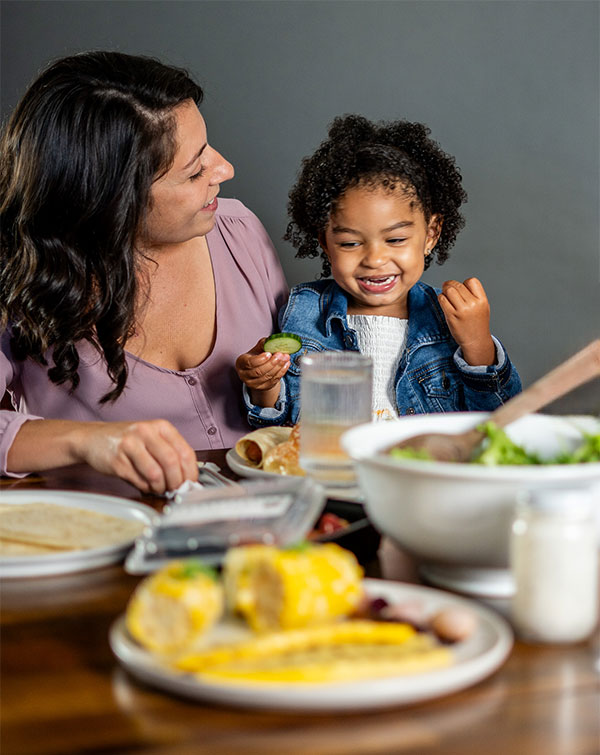
What’s different at Feast & Fettle is its ability, via customization, to cater to multiple dietary preferences within a household. Says Ventura, “We allow dozens and dozens of customizations, depending on the dish. If you order the baked ziti with sausage, we can make it vegetarian. If you don’t like tomatoes, we can remove the tomatoes from the salad.” And, because Feast & Fettle’s dishes are sold in family style portions, customers are already modifying their meals by choosing sides. “We have a framework where you’ll have multiple red meat options, poultry options, vegetarian options, vegan options, and, on our sides, you’ll also have starches, green veggies, non-green veggies, breads, and desserts. All menu items are intended to be mixed and matched with the ability to customize at the dish level as well,” Ventura says.
Then there’s the fact that Feast & Fettle operates its own fleet of refrigerated delivery trucks. This means that they’re able to bring their customers fresher food than services reliant on USPS, UPS, or FedEx, plus, the food arrives in better shape. As Ventura notes, “the moment you put food in a box with insulation and ice, the food actually freezes. It’d be very difficult to ship our salads via FedEx or UPS.”
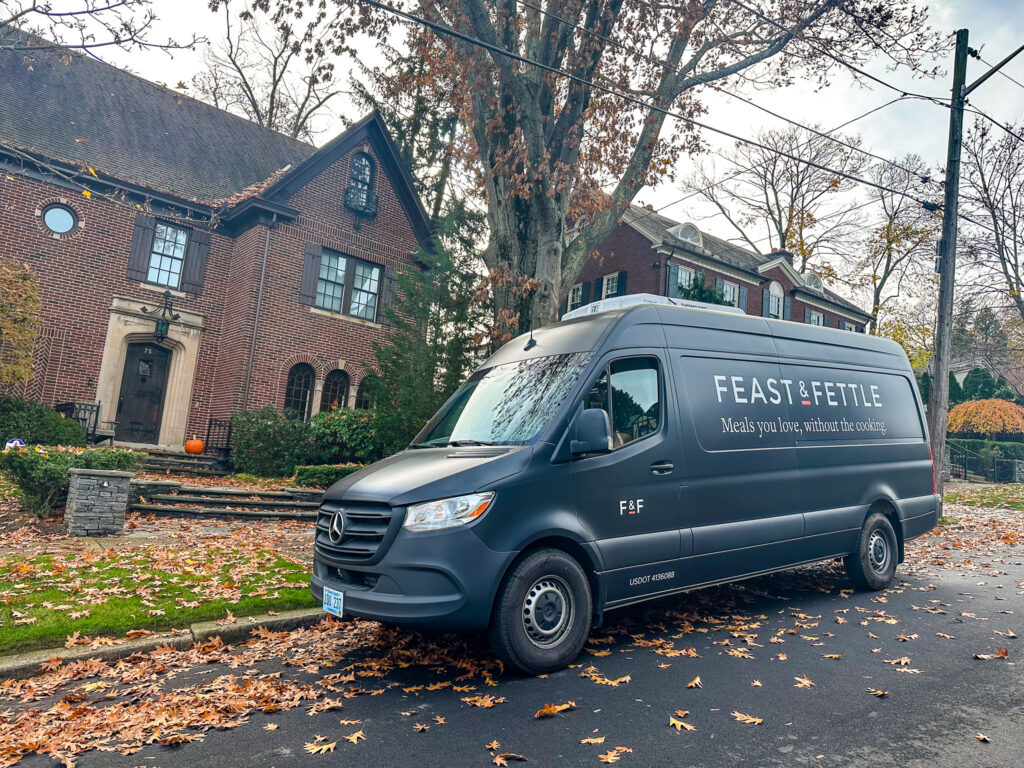
Feast & Fettle, having started as a small-scale enterprise deeply rooted in community, has instituted a built-in program to give back. Says Ventura, “Since 2019, we’ve given $1 from every order to an organization called Edesia. It’s the manufacturer of a product called Plumpy’Nut, which is a peanut butter paste. And what they do is they distribute it across the globe to malnourished children; it helps rehabilitate children very, very quickly.” Ventura adds that $1 of every Westchester order in January went to the Mental Health Association of Westchester. “We’re in the hospitality business. We hire a lot of folks that come from very tough backgrounds where they had been working 100-hour weeks. There’s a real need.”



